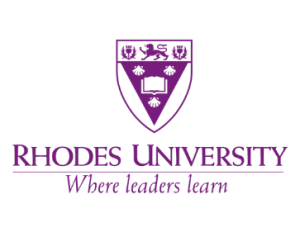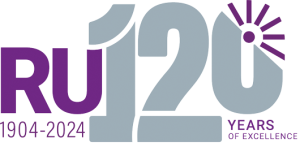By Kate Bryan
Ask any person on the street to name a difficult subject and ‘physics’ is likely to be a common answer. It has a reputation for being hard to understand, hard to learn, and not for the faint of heart or, perhaps in this case, faint of head. Physics is certainly a complex subject, requiring the ability to speak mathematics. In her plenary talk at the South African Institute of Physics (SAIP) conference held at Rhodes University in July 2024, Dr Jennifer Williams, a senior lecturer and researcher in the Rhodes University Department of Physics and Electronics, challenged the audience – whether physics lecturers, tutors, or graduate supervisors – to put themselves in their students’ shoes and consider the difficulties faced by many new students.
Dr Williams specialised in particle physics, beginning her studies at Rhodes University before completing a PhD at Cambridge University. She returned to South Africa, where she took up the mantle of teaching physics to the next generation. It became a passion and, in time, shifted the focus of Dr Williams’ research towards the pedagogy of physics. There are many challenges faced in teaching physics, not least of which is students’ wide range of abilities and preparedness.
Watching those in first-year, new to the tertiary education structure, struggle to master the content despite the efforts made to help, she began to seriously examine the question: what makes teaching physics hard?
“It is due to the nature of what physics is about,” explained Dr Williams, as the content of the subject is complex and mastering it requires building knowledge accumulatively, so that every new concept is resting on an assumed foundation of knowledge. Added to this, the concepts and their explanations can become increasingly abstract, a result that is exacerbated by the necessity for mathematical descriptions of natural phenomena. Indeed, research conducted by Amy Bray, a master’s student of Dr Williams, showed these were common reasons undergraduate students found physics challenging and why teaching it is difficult. However, students turning away from physics were choosing to remain in the field of mathematics, indicating that there was more to the story.
Dr Williams used the Legitimate Code Theory (LCT) to reframe the question of why teaching physics is hard to: what do physics educators value? In answer to this, the knowledge a student has of physics is quickly identified as something that is valued but, related to this and similarly valuable, is the skill of being a ‘knower’. As summarised by Dr Karen Ellery, an associate of Dr Williams and fellow researcher at Rhodes University, knowledge represents what a student knows while ‘knower’ represents how a student knows. Equipping a student with the tools to learn and encouraging curiosity and critical thinking allows them to not just memorise facts but rather apply that knowledge and ultimately push our understanding of physics further.
In a subject like physics, the content becomes increasingly dense through the use (and re-use) of symbols and relies increasingly on mathematics. Both of these directions lead the students further away from their real-world experience, and they are often left wandering in a lofty abstraction with no way to return to the earth. The process of moving between levels of abstraction and ultimately resting on the concrete world is a crucial skill in the tool belt of a physics knower, but it often requires an explicit explanation for students to master it.
“Naming is taming” is one of Dr Williams’ approaches to the problem, aiming to demystify the process for students by regularly discussing the transitions between levels of abstraction as they occur in the lesson. Similarly, giving symbols their full names rather than abbreviating helps students familiarise themselves with new content, along with visual representations, even for abstract concepts
Other interventions aimed at helping students develop their skills at gaining and retaining knowledge included workshops that offer guidance on note-taking and time management and encourage students to take responsibility for their learning. Looking to the future, Dr Williams discussed the value of allowing for a four-year undergraduate degree to allow the students time to develop their skills as knowers, pointing out that many students are currently taking more than three years to complete their degrees.

